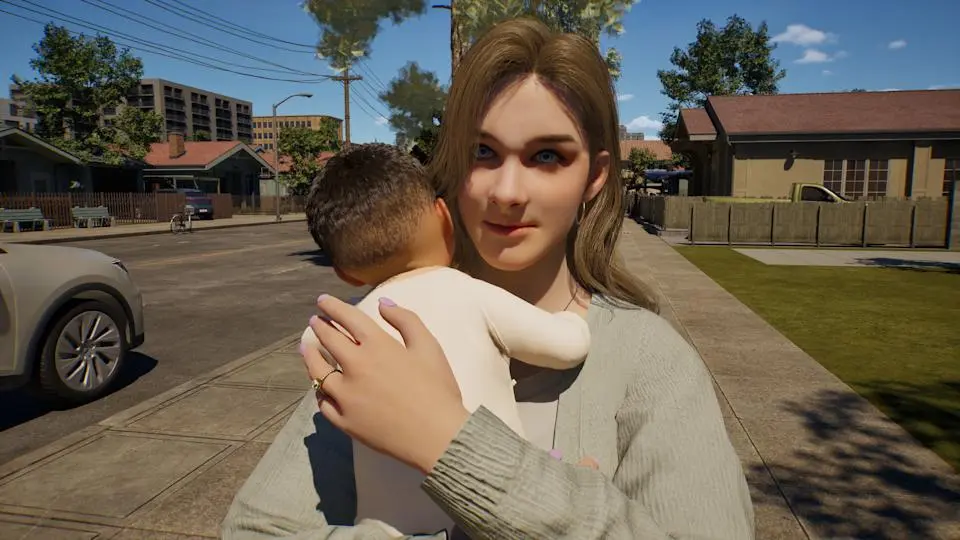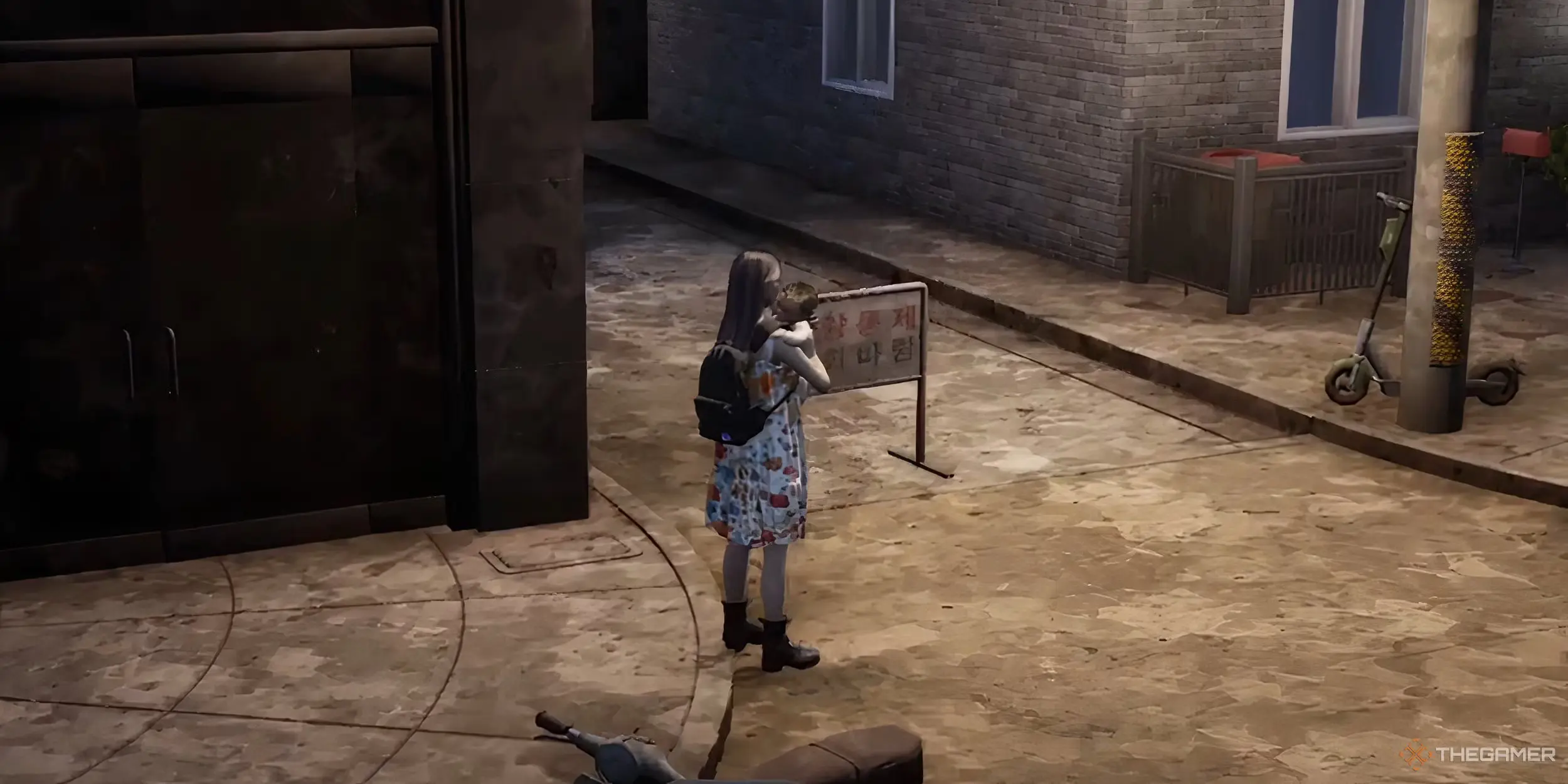The virtual world of gaming is often celebrated for its creativity, community, and freedom. But sometimes, that very freedom can open doors to deeply unsettling behaviors. InZOI, a life simulation game often compared to The Sims, is now under heavy scrutiny not for game-breaking bugs or monetization issues, but for something far more serious: the in-game abduction of children by players.

Yes, you read that right.
Over the past few weeks, multiple disturbing videos have surfaced showing InZOI players picking up child NPCs and walking away with them, often treating the act like a joke or gameplay mechanic. What’s more troubling is that these videos are being shared freely on platforms like TikTok and YouTube, receiving views, comments, and shares all without any visible consequences for the players or restrictions from the platforms.
From Bug to Breach of Ethics
InZOI's developers, who were recently praised for the game’s visual fidelity and detailed world-building, are now being criticized for overlooking crucial boundaries. Until just days ago, the game even had a bug that allowed players to run over children with vehicles. The issue was only recently patched but the damage to the game's reputation may already be done.
This isn’t about glitchy animations or innocent fun. It’s about players abusing game systems to simulate actions that, in real life, are illegal and horrifying.
The fact that such actions were even possible in-game without restrictions or consequences points to a serious lack of foresight in game design and moderation tools. In life simulation games where realism is part of the appeal, there must also be lines that are not crossable.
What’s Actually Happening in InZOI?
The most viral incidents involve players walking up to in-game children, interacting with them in ways that appear playful, then carrying them off to secluded places or outside their families’ homes. There are no warnings. No parental AI response. No consequences. It’s simply… allowed.
This raises pressing questions:
Why are players able to interact so freely with child NPCs?
Why are children in the game designed with such vulnerability?
Where is the moderation?
In a game so focused on immersion, it's jarring how detached from ethical boundaries the simulation can become.
The Real-World Implications
Critics argue that while this is just a game, the normalization of such behavior especially when shared online and turned into a meme can have damaging psychological impacts. Not only does it desensitize audiences (many of whom are minors themselves), but it also creates an environment where child endangerment is treated as a joke.
When virtual worlds mimic real life too closely, real-world ethics must be considered. This isn’t about censorship or creative limitations it’s about accountability.
Game developers must build safeguards into their systems to prevent exploitation, especially when children are involved. If you can’t imagine it happening in a mainstream TV show or movie without outrage, it shouldn’t happen in a game either.
A Responsibility Beyond the Screen
HoYoverse, Riot, Nintendo, and other industry giants have all faced similar reckonings in the past whether due to in-game chat abuse, exploitative monetization, or problematic content. But they’ve also shown how to respond swiftly, patch vulnerabilities, and introduce better community controls.
InZOI’s team has a chance to act decisively here. Banning the spread of exploitative videos, introducing parental AI reactions, restricting child interactions, and building reporting systems should be immediate priorities.

Why This Matters for All Games Even io Fighting Games
You might be wondering what this means for other games especially competitive or action-based ones like io fighting games that don’t feature life simulation or realistic characters.
The truth is, any game with online interaction or creative freedom is vulnerable to similar misuse. We've seen it in shooter lobbies, sandbox games, and even cartoonish platformers. Troll behavior, harassment, and dark humor are not exclusive to one genre and neither are the consequences.
Whether it’s a fast-paced browser brawler or a high-end simulator, developers need to predict and protect against harmful player behavior. Just like io fighting games often implement anti-bot and fair-matchmaking systems, simulation games need tools to moderate ethical boundaries within their worlds.
Gamers especially younger ones take cues from the environments they play in. If you reward cruelty or ignore it, players will normalize it.
Community Reaction: Mixed but Growing
While some in the community are brushing off the controversy with the usual it’s just a game rhetoric, others are genuinely concerned. Reddit threads, X (formerly Twitter) posts, and YouTube comments show a growing unease. Parents, educators, and even casual gamers are calling for tighter oversight and responsible content guidelines.
It’s no longer enough for developers to release patches after the fact. There needs to be proactive design especially in genres that simulate real human life.
Time to Draw the Line
InZOI’s current controversy serves as a powerful reminder: freedom in games must be balanced with responsibility. We’re no longer in the early days of gaming. Players now spend hundreds, even thousands, of hours in virtual spaces. These spaces influence behavior, shape community culture, and whether we like it or not reflect real-world values.
Letting child abduction scenarios play out unchecked isn’t edgy or funny. It’s a failure of design, moderation, and foresight. And while the developers may not have intended for this to happen, their response now will define the game’s legacy.
For the sake of future development in InZOI and beyond it's time for the industry to ask: not just what can we simulate, but what should we simulate?